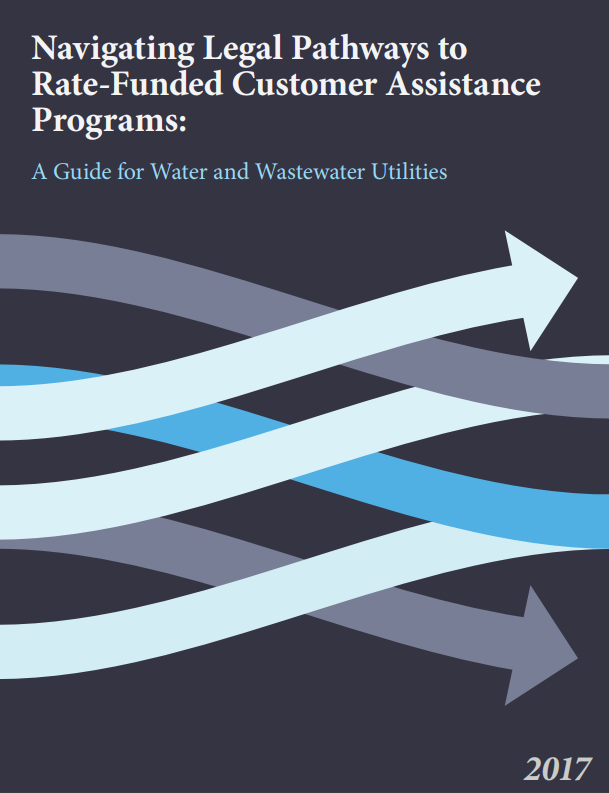The at the University of North Carolina Chapel Hill prepared this report to help steer their members through a complex regulatory landscape. In their efforts to design and implement programs that make it easier for low-income customers to pay for water and wastewater services, utilities must navigate a confusing and often ambiguous legal framework that varies considerably from state to state. Many states impose different rules and regulations on different types of utilities—water versus wastewater, government-owned versus private ownership—such that some utilities are able to design programs in a way that other types of utilities are not. This report seeks to elucidate regulatory policy on the design and funding of consumer assistant programs (CAPs) in each state. It also includes a potential roadmap for utilities interested in establishing more ambitious CAPs.
Navigating Legal Pathways to Rate-Funded Customer Assistance Programs: A Guide for Water and Wastewater Utilities
